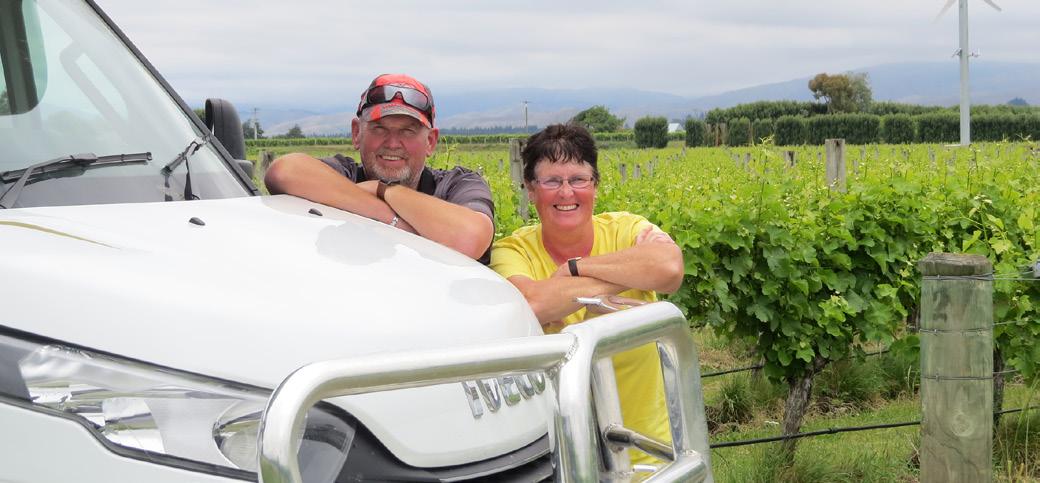GROW
Forgotten Corners Good mahi at Mount Riley KAREN WALSHE
“Ideally our strip of planting would connect to other plantings on adjacent land and run the full length of the stream.” Matt Murphy PLANTING 3,000 natives along a vineyard stream seems like the perfect recovery for a weary vintage team, says Mount Riley winemaker Matt Murphy. “To chill out, not thinking about all the hard mahi we have done in the previous weeks.” But it’s more about a good recovery for the Pukapuka stream, which runs down the side of the company’s Seventeen Valley vineyard at the foot of Weld Pass, 12km from Blenheim. “We thought this would be a cool spot to do something awesome”, says Matt, who has been full of ideas for increasing biodiversity at Mount Riley, but short on space to make them a reality. Matt says the two-hectare area set aside for planting was traditionally grazed in the winter. “A couple of years ago we decided to fence off the area bounding the stream and we have already started to see native plants regenerating. We have already had kānuka, broadleaf and kōwhai start to self-seed.” Mount Riley winery was successful in its application to the Marlborough District Council’s (MDC) Working for Nature/ Mahi mō te Taiao grant (see sidebox), and is receiving funding for the project, which will begin with tackling willow, broom and pine. “Then we have plans to plant over 3,000 natives along the stream bank, and the funding we have received from the Working for Nature fund will help to fund plants, stakes and tree protectors,” says Matt. “We will organise a company planting day so that the staff can get involved and plant the trees. Once we have established the natives, we will get into some pest control work.”
22 / Winepress January 2022
In 2016 the MDC investigated complaints about damage to the stream, thought to be due to organic matter stored upstream from the Mount Riley property. The council later took the case to the Environment Court and in 2020 the owner was ordered to start riparian planting along the stream’s banks, as one of a number of measures to prevent further damage and remediate the damage. “Ideally our strip of planting would connect to other plantings on adjacent land and run the full length of the stream so that we start to establish a corridor for the birds from the hills to the lagoons and back,” says Matt. “The remedial planting further up the stream, combined with our plantings, would be a good start.”
Working for Nature Marlborough has been identified as one of five centres of biodiversity in New Zealand due to its large concentration of endemic species. The variety of biodiversity is due to the range of habitat that Marlborough provides, from its dry, rocky conditions in South Marlborough to the forests, wetlands and coastal habitats of the Marlborough Sounds. In September 2020, the Marlborough District Council established a new grant to protect and restore native biodiversity. The Working for Nature/Mahi mō te Taiao grant is a $90,000 annually contestable fund that considers projects that would have previously fallen under the Tui to Town and the Greening Marlborough funds. Mount Riley Winery is one of three wine-related companies to be granted funds in the most recent round.






